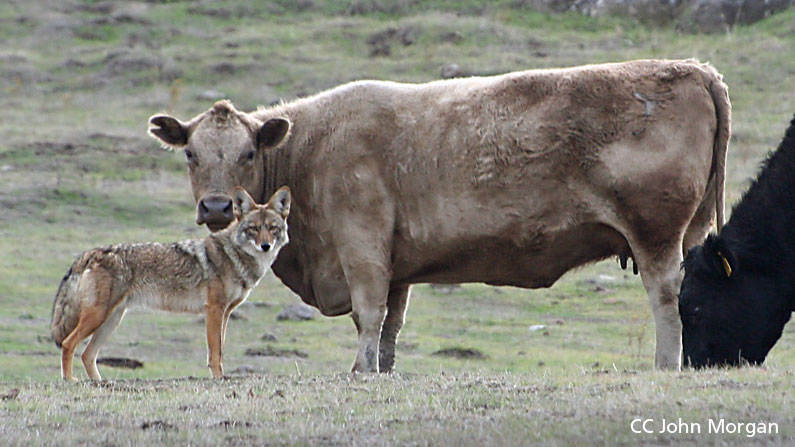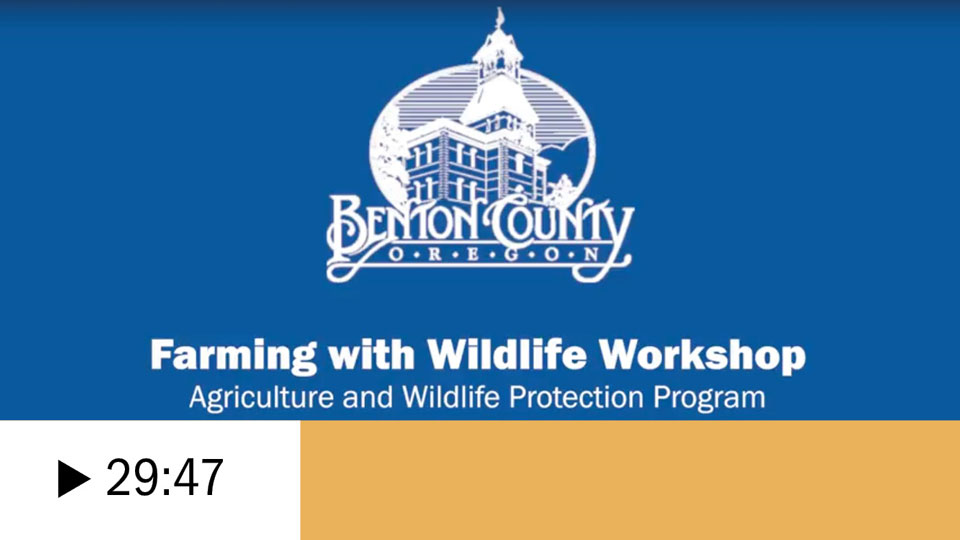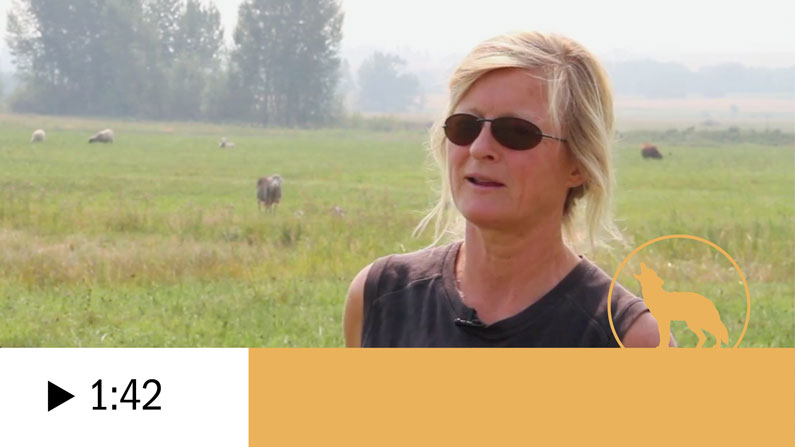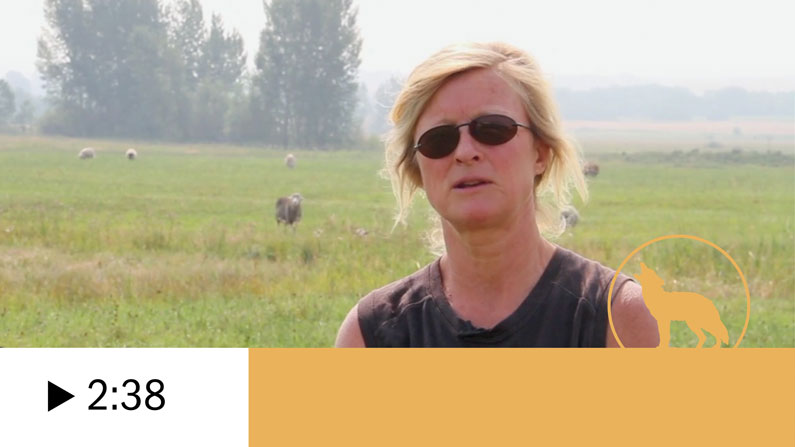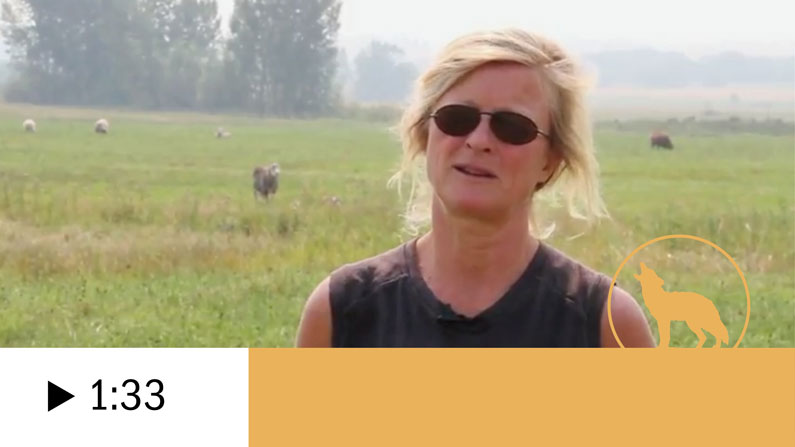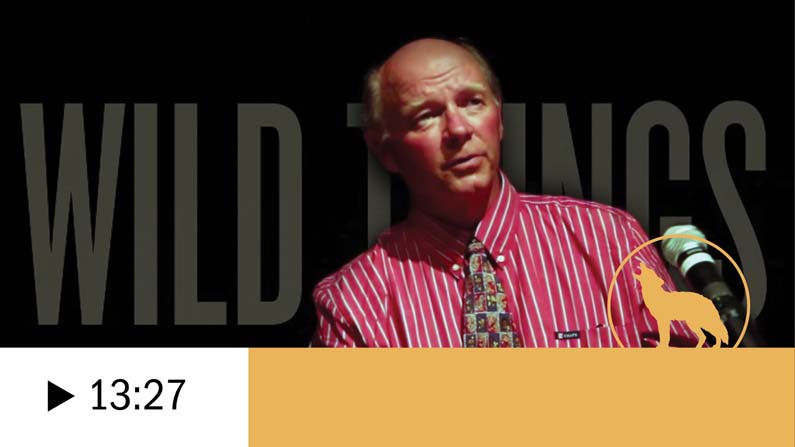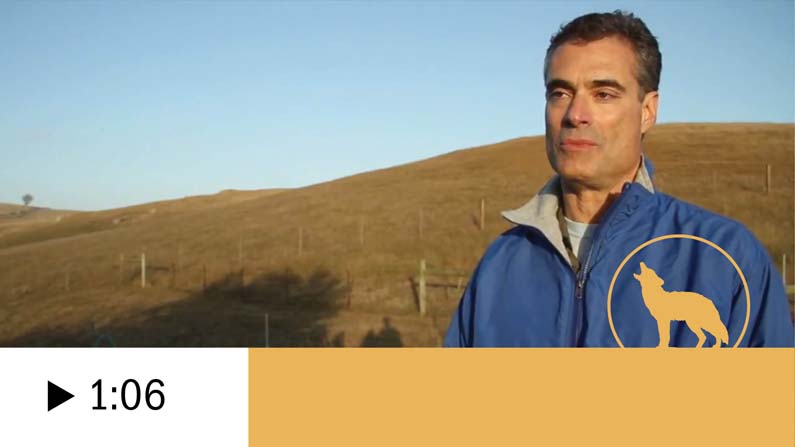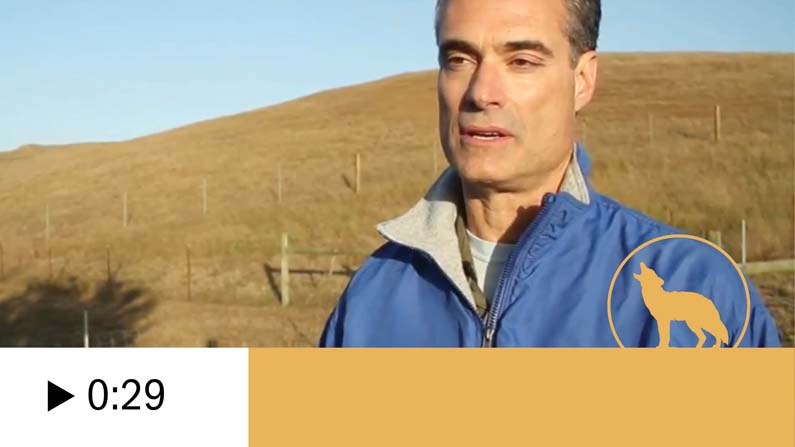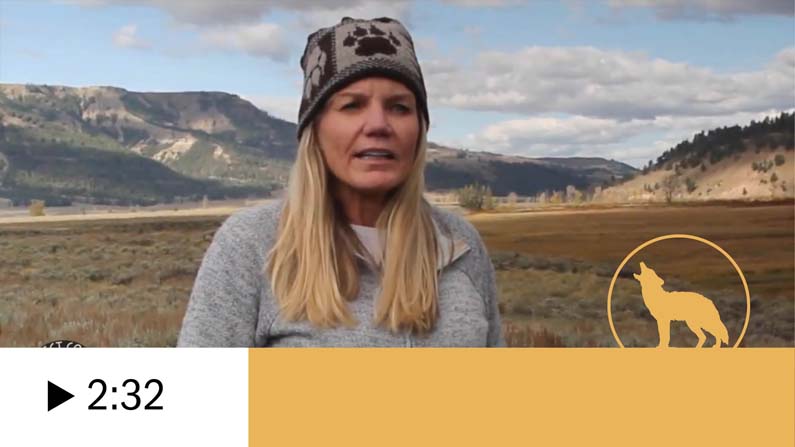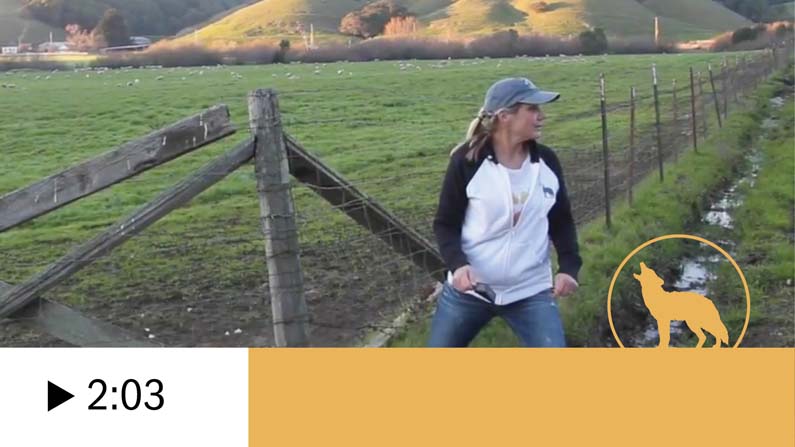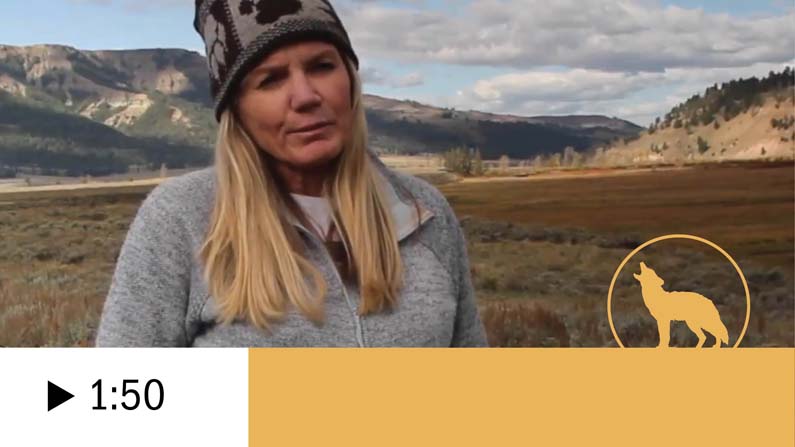
RANCHING & FARMING WITH WILDLIFE
As wolves, grizzly bears, mountain lions and other large carnivores begin to recover from near extirpation throughout much of their historical range, new models of coexistence are needed. Project Coyote promotes collaboration among stakeholders united by a goal of coexistence among people, livestock, and wildlife. We further seek to promote healthy habitats and ecosystems: eco-restoration of ranches through predator-friendly ranching and the use of models of coexistence and sustainability.
In 1996 in Marin County, California, public concern over the use of poisons, snares, “denning” (killing coyote and fox pups in their dens), and other lethal methods by the U.S. Department of Agriculture’s Wildlife Services led to a decision by the County Board of Supervisors to stop contracting with the federal agency. As an alternative, in 2000 the Board approved a non-lethal cost-share program — the Marin County Livestock & Wildlife Protection Program — to assist ranchers with livestock-predator conflicts.
The Program is a collaboration of local wildlife conservation organizations, ranchers, scientists, and county officials. Camilla Fox co-led this grassroots effort which led to adoption of the non-lethal Marin County Livestock & Wildlife Protection Program by the Marin County Department of Agriculture. The Program, which started as a 5-year pilot project, has been so successful that it is now a permanent county program.
Now in its 15th year, the program has directly and significantly reduced livestock losses while protecting wildlife.
Through our Ranching & Farming with Wildlife program we work with communities and agencies to:
1) Foster coexistence;
2) Reduce conflicts with livestock with an emphasis on non-lethal methods;
3) Develop and implement proactive, long-term carnivore coexistence programs;
4) Field test predator deterrents;
5) Promote understanding and appreciation of the key ecological role of native carnivores.
We also speak to different audiences through presentations, film, publications, and social networking to expand the scope and use of the Marin non-lethal Program in other parts of the country, tailoring the model for each community’s needs.
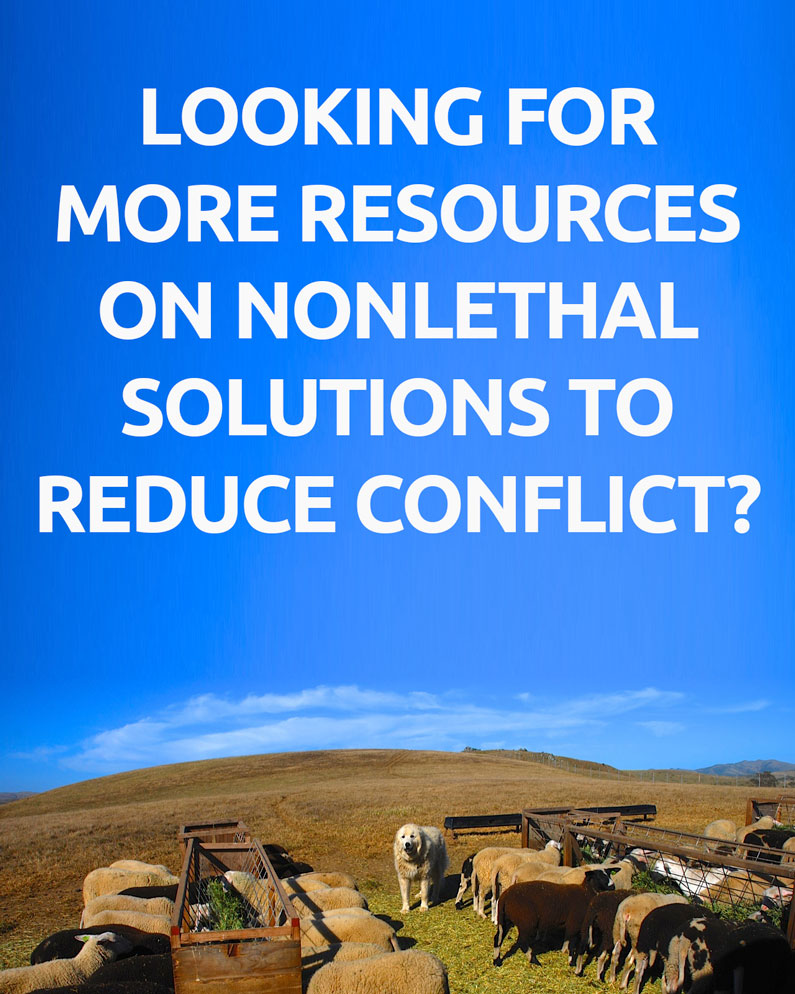
Project Coyote and the Snow Leopard Conservancy have joined forces to test predator deterrent methods for livestock protection including disruptive stimuli-based deterrents.
Learn more about the benefits of coyotes to ranchers or download the factsheet.
Learn about the success of programs in Marin County here: The Marin County Livestock & Wildlife Protection Program: A Non-Lethal Model for Coexistence
Learn more about Benton County, Oregon’s Agriculture and Wildlife Protection Program here.
Read Using Coyotes to Protect Livestock. Wait. What?
By: Randy Comeleo, Committee Chair, Benton County
Agriculture and Wildlife Protection Program
► RANCHING & FARMING WITH WILDLIFE

Predator friendly rancher Becky Weed talks about how existence and why predators matter.

